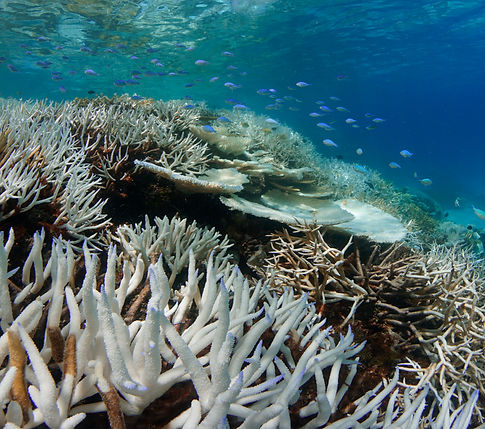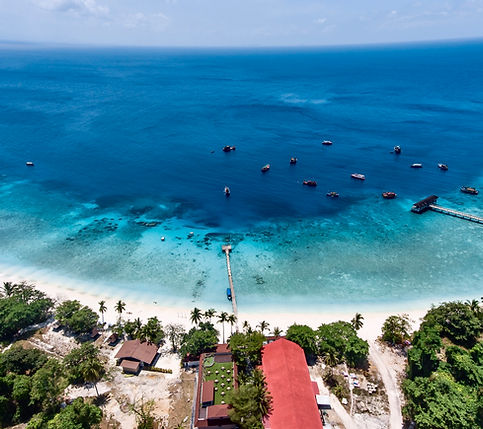

Coral Reefs
-- a tapestry of colors, an epicenter of life.
The colorful complexity of coral reefs leaves a long lasting impression upon people. On a clear and sunny day, when the sunlight glimmers through, a coral reefs gives the image of perfect tranquility. Very few landscapes can compete with the grandeur and beauty of coral reefs.
Coral reefs resemble crowded cities: always busy, never sleeping and bustling with life. Fish, crabs, lobsters, octopus, sharks and many other animals engage in a tumultuous chaos, which, when one looks closer, it is not that much chaos after all, but a structured explosion of biodiversity. For us humans, coral reefs are not just a source of food and income, but a peaceful retreat, where we get to marvel at the variety of life like nowhere else.
THE CORAL REEF CRISIS
Many of today's coral reefs have irreversibly changed. What once used to epicenters of life with epic displays of colors and shapes, are now barren landscapes of dead coral rubble. Secondary coral assemblages, that are far less complex and diverse, have replaced the original, structurally complex coral reef that has evolved over many centuries. Just like shrubs that grow on a deforested land, these secondary reefs do not have the same ecological and economical value. Much of this change is attributed to human activity, and the worst is yet to come if we do not intervene.
CLIMATE CHANGE & CORAL REEFS
Ocean heatwaves are becoming more severe and frequent, inevitably triggering mass coral reef decline in a process known as 'coral bleaching'. Coral reefs are the 'canary in the coal mine', as saving coral reefs means saving the climate altogether. To ensure successful preservation and restoration of coral reefs, a dramatic reduction in greenhouse gas emissions is necessary. However, as emissions trajectories are currently unfavorable, scientific interventions are needed to find those coral reefs and species that are the most adaptable and adjustable to increasing temperatures. Time is running out, but our recent research suggest there is hope, as several coral species have shown signs of higher thermal tolerance.
Coral reefs and tropical island tourism are inherently intertwined. Simply said, what is good for coral reefs is good for the tourism industry. Unfortunately, unplanned development caused dramatic degradation of coral reefs, not just in Malaysia, but in several other regions as well. Once development is completed, threats to coral reefs continue as sewage discharge, waste pollution and other practices can have severe consequences for coral reefs. It is therefore imperative to work with tourism businesses and stakeholders to ensure sustainable travel to coral reef destinations.
CORAL REEFS & ISLAND TOURISM


Socio-economic impacts of reef degradation are not to be underestimated. In Malaysia, the fishing industry was valued at 1.12 billion RM in 2019, of which more than 500 million RM are generated by coral reefs. The tourism industry in Malaysia derives 1.625 billion RM annually from recreational diving, mostly in coral reef areas. Globally, coral reefs contributed 36 billion USD annually to the global economy, making them one of the most valuable ecosystems. Let's keep in mind, over 1 billion people depend on coral reefs. Their preservation and sustainable management is paramount.
Do we need to intervene?
Prevention is better than mitigation. This means we need to stop polluting the atmosphere and the oceans, eliminate overfishing, and prevent unplanned and unmanaged coastal development. These are mammoth tasks, but absolutely necessary. If we are successful in preventing the above, coral reefs will recover, but will have changed forever. Interventions are necessary as we fight the climate crisis. Having pushed many coral reef sites to the edge of collapse, ecosystem restoration needs to be part of our response to mitigate the ongoing loss of coral reefs.
CORAL REEFS & ECOSYSTEM SERVICES
NATURAL CORAL REEF RECOVERY





